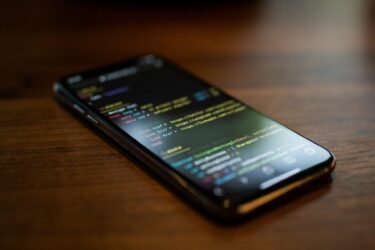As the Europeana digitisation roadshow starts in Germany this week we spoke to Jonathan Purday, Senior Communications Advisor at Europeana.eu, formally of the British Library, about how social media, crowdsourcing, and wiki-principles are preserving European history and bringing academia and the public closer together.
Find out more about this project, and its aims, here.
The Sociable: To start, can you explain Europeana to those who may not be aware of the young site?
Jonathan Purday: Europeana is the portal for cultural and scientific heritage material digitised by museums, libraries, archives and audiovisual collections from every country in Europe. At present we provide access to over 15 million texts, images, films and sounds from over 1500 collections. Some are national, others are local museums and archives
The Sociable: It is almost a century since The Great War, why begin collecting a digital archive now?
Jonathan Purday: The last surviving soldier from WW1 in the UK died last year. Those who have direct memories of the war are very few now, and families have handed down documents and letters, stories and souvenirs. These are often fragile, and those who hold them want to transmit them, and make sure the memories are preserved. So in many cases time is short and now is the right time because the centenary of the war is approaching, and public interest will grow. We need to provide opportunities online for people to discover more about the war, and to understand the different perspectives.
Another project starting soon is Europeana 1914-1918 which will digitise documents from several national and research libraries in Europe. This includes trench newspapers and official records. There are also collections of papers from the politicians and commanders. It’s important to offer a range of source materials in order to get a full picture.
The Sociable:Many of the owners of these items are no longer with us or may not be aware of how they can contribute to such a project, how do you motivate these people to take part?
Jonathan Purday: People are showing great interest. Thursday was the Frankfurt contribution day, and people brought hundreds of letters, diaries, postcards and memorabilia along to be digitised. When the project was announced on the radio, a lady in Wuppertal, aged 89 and nearly blind, asked her neighbour to email us to help her contribute. Our partners at the Berlin State Library got in touch with her and have found a way to help her.
The main German news service broadcast interviews and part of our launch video last week: this seems to have generated a lot of enthusiasm.
A lady in Wuppertal, aged 89 and nearly blind, asked her neighbour to email us to help her contribute. Our partners at the Berlin State Library got in touch with her and have found a way to help her.
The Sociable:By showing a more personal side to life during the First World War the archive challenges common perceptions and images of the war, has the project done the same in the academic field?
Jonathan Purday: The German and English historians who we are working with on the project have been saying that the documents coming in today are significant, offering important primary sources material for future researchers.
Bringing family history together with the official sources will also allow us to put together interesting online exhibitions and create classroom resources – the stories are very immediate and personal.
The Sociable:When we think of the British Library or other cultural institutions we wouldn’t normally think of social media or crowdsourcing. What do these technologies and methods offer you?
Jonathan Purday: New ways of engaging with people. It’s important that to memory that organisations such as museums, libraries, archives stay in touch with people and remain relevant, and an intrinsic part of their lives.
Increasingly, expertise is shared between the academic and cultural heritage sectors and the expert amateurs among the wider public. Sharing knowledge between the professional and amateur works well on the web. We’re working closely with the Wikipedia community who are looking for ways to engage with the institutional sector.
The Sociable: One of the common criticisms of crowdsourcing argues that it produces more ‘noise’ than ‘signal’, how do you separate historically significant content from the many digital files you receive?
Jonathan Purday: We’re working with the Great War Archive who pioneered this approach back in 2008. They received a great deal of signal and almost no noise – substantial amounts of primary source material, some of which shed new light on the war and told compelling stories.
The Sociable: What plans are there for the future of the project?
Jonathan Purday: We will be rolling the project out in France later this year. We are talking to Belgian partners and we are planning similar initiatives in Poland, the Balkans and the Baltic states. Europeana is one of the few organisations that has contacts in all the countries and can attempt this kind of pan-European programme.
Europeana is one of the few organisations that has contacts in all the countries and can attempt this kind of pan-European programme.
The Sociable: Can you explain how people can take part?
Jonathan Purday: People can upload digital photos and scans on to the website at www.europeana1914-1918.eu/en
If they are in Germany in the next 2 weeks they can attend a digitisation roadshow:
- Deutsche Nationalbibliothek, Frankfurt am Main 31. März 2011, 10-20 Uhr,
- Staatsbibliothek zu Berlin – PK 2. April 2011, 10-17 Uhr,
- Bayerische Staatsbibliothek, München 6. April 2011, 10-20 Uhr,
- Württembergische Landesbibliothek / Bibliothek für Zeitgeschichte, Stuttgart 12. April 2011, 10-20 Uhr
The Sociable: Who can submit content, is the submissions process open to everyone (non-UK, non-German citizens)?
Jonathan Purday: Anyone can submit content but at this stage of the project it needs to relate directly to Germany or involve German people.
The Sociable: What type of content are you looking for (do images or videos need to be pristine or is some damage okay)?
All types of documents, letters, notebooks, diaries, sketches, photographs, film, medals and uniforms and all sorts of memorabilia. The more personal the better: much of the mass publications will already have been collected by the libraries and museums.
We accept that some material will be damaged, but so long as it is legible or the picture can be made out, that’s fine.













